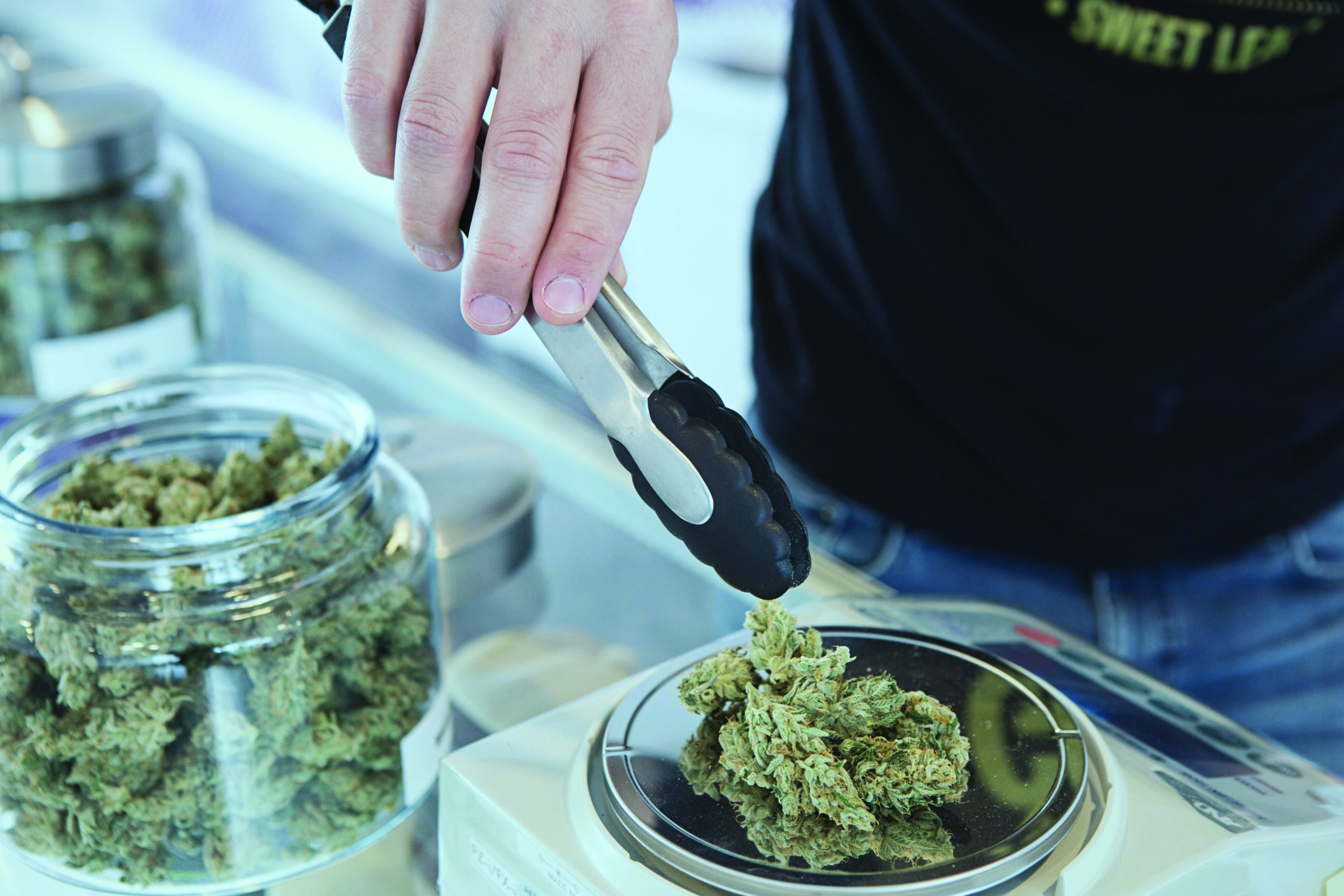
A good night’s sleep is critical for health and happiness. Adults should get seven to nine hours of sleep, according to experts. Long hours of sleep each night aid in replenishing the energy for the next day. Furthermore, it assists with memory formation, muscle and tissue growth and repair, and illness prevention.
Unfortunately, for some, falling asleep and staying asleep can be challenging. Nearly one-third of American employees sleep less than six hours per night, and up to 70% of Americans3 do not get the required amount of sleep.
Does CBD help with sleep? There are a variety of approaches to getting better sleep and avoiding sleep debt. Improved sleep hygiene and prescribing medication are all options, but the article will consider If CBD can be a good sleep aid.
How Can CBD Help With Sleep Disorders?
Can CBD help with sleep? CBD’s efficacy in the treatment of epilepsy has been well-documented thus far. CBD may also help treat schizophrenia and substance use disorders, according to preliminary research. There is currently inadequate study to assess the efficacy of CBD in treating other diseases.
However, preliminary research suggests that CBD may aid with insomnia, REM sleep behavior disorder23, and excessive daytime sleepiness disorder. CBD may also help people sleep better and feel less anxious, according to a preliminary study.
Anxiety and CBD
Anxiety can exacerbate poor sleep quality, insufficient sleep, and sleep disorders. Research suggests that CBD can be utilized to treat anxiety-related diseases since it relaxes the nervous system. According to the study that included participants who took CBD for one month, nearly 80% of participants who took CBD to treat anxiety reported lower anxiety levels, according to one study. Sleep quality increased for more than 65 percent of participants at first, but it dropped when they stopped taking the CBD.
Insomnia and CBD
Insomniacs have trouble getting asleep and keeping asleep at night. This condition affects daytime wakefulness, concentration, and mood. People with insomnia may have anxiety about getting insufficient sleep due to their history of poor sleep, which can lead to increased restlessness at night.
Given the possible benefits of CBD in the treatment of anxiety, it’s thought that CBD could also aid with insomnia-related anxiety. A new pilot study of CBD and THC use in adults with insomnia indicated by a physician is also underway. The study’s findings will provide further information about CBD’s impact on insomnia.
REM Sleep Behavior Disorder and CBD
During rapid eye movement (REM) sleep, people with REM sleep behavior disorder talk and make violent movements. The problem is more common in older people who have neurological diseases like Alzheimer’s or Parkinson’s.
CBD helped treat REM sleep behavior disorder symptoms in a small trial of four Parkinson’s disease patients. The patients had disorder symptoms 2–7 times per week before starting CBD. Symptoms appeared 0–1 time each week after using CBD. More research is needed, but these preliminary findings point to CBD as a potential REM sleep behavior disorder treatment.
Excessive Daytime Sleepiness Disorder and CBD
Excessive daytime drowsiness problem makes it difficult to stay awake throughout regular daytime hours. CBD may be one answer for getting up on time and staying awake. CBD appears to operate as a wake-inducing agent in animal studies. Other research, on the other hand, implies that CBD acts as a sedative. More research is needed to see how different CBD doses and methods affect wakefulness and sleepiness.
What the research says about CBD and sleep
Does CBD help with sleep? Growing public interest in marijuana’s advantages, particularly CBD, has prompted academics to investigate its effects during the last decade. High doses of CBD, according to preliminary research, may help with sleep.
A study indicated that a CBD dosage of 160 milligrams(mg) enhanced sleep duration compared to a placebo. The researchers also discovered that the placebo, 5 mg of the insomnia medicine nitrazepam, and 160 mg of CBD all assisted the subjects in falling asleep.
Cortisol, the stress hormone, usually peaks in the morning, but insomnia persons may have high cortisol levels at night. In addition to sleeplessness, having a high cortisol level may interfere with sleep circles. Reducing cortisol levels will induce sleep.
In one study on the effects of CBD, researchers discovered that when subjects consumed 300 or 600 mg of CBD oil, cortisol levels dropped dramatically. These findings show that CBD inhibits cortisol release, possibly functioning as a sedative.
A more recent study was conducted, involving103 people with anxiety, or poor sleep. The researchers looked at the effects of CBD in combination with other prescription drugs.
Doses of CBD ranged from 25 to 175 mg. The researchers discovered that 25 mg was the most beneficial dosage for anxiety, but higher doses were necessary for better sleep. You need a specific quantity of CBD to enjoy the benefits of CBD, and it won’t make a difference if you exceed the correct dose. You only don’t get results when you take a small amount.
How to use CBD for sleep?
You can consume CBD in a variety of ways. It’s available in a variety of formats, including:
- Concentrates for vaping
- Tinctures and oils
- Capsules & pills
- Gummies, for example, are foodstuffs.
CBD gummies get into your system and help with sleep. CBD gummies are considered to be the best method of taking CBD for Sleep. They are easy to take and you can carry anywhere comfortably.
The amount of CBD you take and how long you take it will be determined by various factors. How CBD works depends on your weight, unique body chemistry, and the extent of your sleeping problems. Furthermore, what works for one person may or may not work for another.
The majority of research trials on CBD and sleep have given participants anything from 25 mg to 1 gram of CBD.
The Bottom Line
Sleep disorder is a frequent ailment for which doctors often prescribe behavioral adjustments, often in conjunction with prescription medications. CBD may help, but many underlying questions need answers before approving it as an option. Despite many positive reviews about it, their whole industry is still questionable.
Some people use CBD to treat their sleeping problems. CBD appears to be generally harmless, while research into its effects, especially over time, is lacking. Doctors aren’t sure if CBD helps people sleep, but some data suggests it might. More research is needed to determine the most effective way to take CBD and the appropriate dosage to help sleep.






